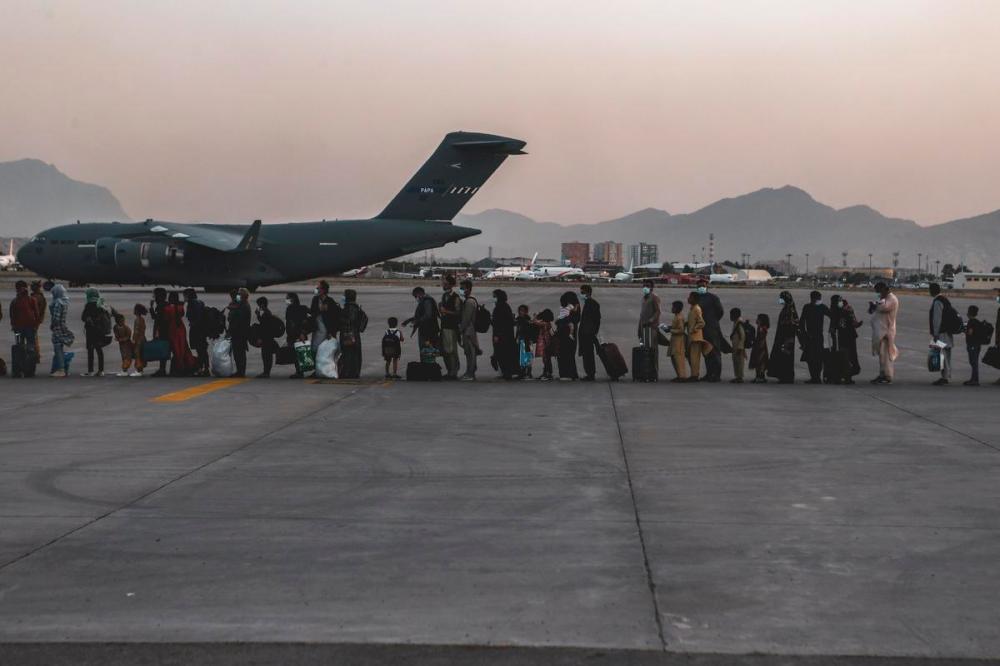Inaction in Afghanistan isn’t an option, but we must move now
Advertisement
Read this article for free:
or
Already have an account? Log in here »
To continue reading, please subscribe:
Monthly Digital Subscription
$1 per week for 24 weeks*
- Enjoy unlimited reading on winnipegfreepress.com
- Read the E-Edition, our digital replica newspaper
- Access News Break, our award-winning app
- Play interactive puzzles
*Billed as $4.00 plus GST every four weeks. After 24 weeks, price increases to the regular rate of $19.00 plus GST every four weeks. Offer available to new and qualified returning subscribers only. Cancel any time.
Monthly Digital Subscription
$4.75/week*
- Enjoy unlimited reading on winnipegfreepress.com
- Read the E-Edition, our digital replica newspaper
- Access News Break, our award-winning app
- Play interactive puzzles
*Billed as $19 plus GST every four weeks. Cancel any time.
To continue reading, please subscribe:
Add Free Press access to your Brandon Sun subscription for only an additional
$1 for the first 4 weeks*
*Your next subscription payment will increase by $1.00 and you will be charged $16.99 plus GST for four weeks. After four weeks, your payment will increase to $23.99 plus GST every four weeks.
Read unlimited articles for free today:
or
Already have an account? Log in here »
Hey there, time traveller!
This article was published 25/08/2021 (1528 days ago), so information in it may no longer be current.
Choices have consequences. As U.S. security forces withdrew in Afghanistan, the Taliban army swept across the country, capturing all major cities in a matter of days, leaving many Afghans terrified for their safety.
For many, life under the Taliban, designated a terrorist group by Canada, is not an option. Some are racing to the soon-to-be-closed airport, their lives and families at risk as revenge killings rise. Others are mobilizing the resistance on the ground.
Canadians are well aware of their responsibility to Afghanistan. It’s time for Canada to renew our historical commitment to humanitarian aid and compassion.

Afghani’s who supported Canadian diplomats, soldiers and human rights champions have become Taliban targets. We’ve begun to demonstrate our resolve to them through the courageous work of Canadian Armed Forces with Operation AEGIS, who are working in brutal conditions to evacuate these brave individuals.
But there are many who will not get on planes. Over the past two decades 3.3 million girls were able to attend school, become lawyers, doctors, teachers, and engineers. All this progress is at serious risk. Today, Afghan women and girls are being denied the right to work, go to school or even attend medical appointments.
Women’s rights activists have gone into hiding, preparing for the potential of decades of resistance fighting against the new Taliban government. They are not backing down. They are calling for global solidarity.
For Canada, this means cutting red tape and wait times for the 20,000 refugees we have committed to resettling, and increasing that number as the crisis unfolds. It also means empowering humanitarian and aid organizations with flexible funding for our Afghan partners to shape the future they want to see.
Solutions to this crisis won’t be simple, but there is no excuse for inaction. Ontario midwives are calling for the immediate reunification of forgotten families in Afghanistan — 105 Afghan refugees living in Canada were forced to flee under threat of violence from the Taliban for their work with Canadian government programs on sexual and reproductive rights. Their families have been living in hiding for years. Promises of resettlement are not enough. Temporary Resident Permits and the evacuation of their families must be accelerated.
In the meantime, Canadians everywhere need to step up. We owe it to the Canadian military veterans who lost their lives on Afghan soil. Many organizations in the field are forced to work undercover, but organizations like UNICEF are scaling up life-saving programs. Their commitment to Afghanistan’s children is “unequivocal.” Their aim is to see that “the rights of each and every one of them are realized and protected.”
Now is not the time to give up the fight, now is the time to turn toward danger and face it head on, because Canadians don’t leave people behind.
Penny Collenette is a lawyer, activist and former senior director of the Prime Minister’s Office.Julia Anderson is a women’s rights advocate and chief executive officer of the Canadian Partnership for Women and Children’s Health.




